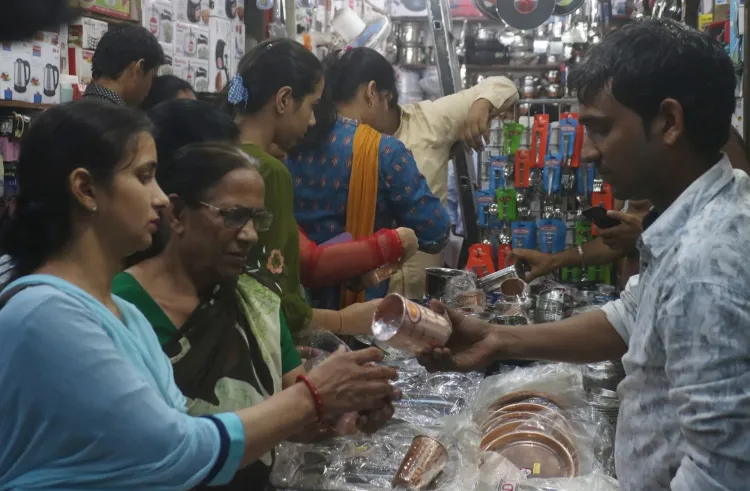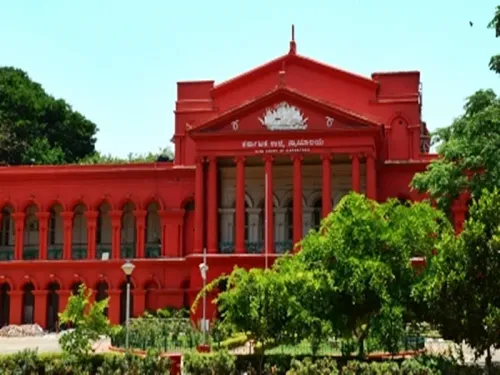Will GST 2.0 Rate Cuts Accelerate Growth in Delhi’s MSME, Trade, and Hospitality Sectors?

Synopsis
Key Takeaways
- GST 2.0 rate cuts provide financial relief to households.
- MSMEs and traders are likely to see increased demand.
- Hospitality sector benefits from lower hotel stay costs.
- Auto parts GST reduction enhances vehicle maintenance affordability.
- Job opportunities in hospitality are expected to rise.
New Delhi, Sep 25 (NationPress) The implementation of GST 2.0 rate cuts offers significant relief to households in Delhi, alleviating their daily expenses while providing a multi-sector boost to the city’s economy. This initiative positively impacts MSMEs, traders, and the hospitality industry by driving demand, lowering input costs, and enhancing competitiveness.
From the bustling automobile and apparel markets in Karol Bagh to the wholesale trade in Sadar Bazar and Khari Baoli, the effect will be felt widely. Furthermore, reduced rates on essential goods and services will directly cut costs for families throughout the state.
Delhi serves as a crucial hub for automotive components. Notable areas like Karol Bagh and Kashmere Gate are renowned for their wholesale and retail markets. These family-owned businesses and MSMEs not only cater to Delhi’s vast vehicle population but also distribute parts across northern India and export to neighboring countries (trade from Delhi’s auto hubs is valued at approximately Rs 1,000 crore monthly to Bangladesh). The auto components market in India recorded a turnover of Rs 6.14 lakh crore in FY24, with Delhi’s markets as a key distribution point.
The decrease in GST on auto parts from 28% to 18% will lower vehicle maintenance costs for both consumers and mechanics by about 7.8%. More affordable spare parts lead to reduced service bills, encouraging vehicle owners to replace worn components more quickly, ultimately enhancing safety and efficiency on Delhi’s roads.
As the national capital, Delhi is a prime destination for tourists, business travelers, and medical tourism. It offers a range of accommodations, from luxury properties to budget options in Paharganj and Karol Bagh. In 2024, Delhi’s hotel market achieved an average occupancy rate of approximately 72.9% with an average daily rate (ADR) nearing Rs 10,273.
The newly established GST rate of 5% for rooms priced under Rs 7,500 per night significantly reduces hotel stay costs in Delhi. For instance, a room priced at Rs 5,000 per night now incurs an additional tax of only Rs 250 (5%), making hotel stays around 6.25% less expensive. These savings accumulate over multiple nights, resulting in improved occupancy rates.
In addition to room-rate reductions, essential kitchen inputs used by hotels, restaurants, cafes, and caterers have also seen a tax reduction from 18% to 5%. This 13-percentage-point cut on these vital supplies will directly lower input costs for restaurants and hotels.
Delhi-NCR boasts the highest number of hospitality job opportunities, with a 20.37% increase in job postings during 2022-23. A sustained boost in this sector would lead to greater job creation and improved earnings for the vast workforce employed in Delhi’s hotels and restaurants.
Moreover, Delhi is a significant consumer of milk and dairy products, supported by a robust supply network from cooperatives such as Mother Dairy and Amul. The city provides employment opportunities for thousands in milk processing plants (including the Mother Dairy facility in Patparganj) and as vendors in local markets.
Other products like footwear, eco-friendly furniture, beauty and wellness services, and printing-paper packaging are also part of Delhi’s consumer landscape, fueling its MSME sector. The GST reduction on affordable footwear and finished leather, along with furniture and stationery items, will lower final prices and alleviate working-capital pressures for small traders.
GST rates on items like bamboo, cane, and rattan furniture are now set at 5%, enhancing affordability for households and ensuring demand stability for artisans and small retailers. The furniture sector employs thousands in both formal showrooms and informal workshops throughout Delhi, with prominent markets in Kirti Nagar and Panchkuian Road.










